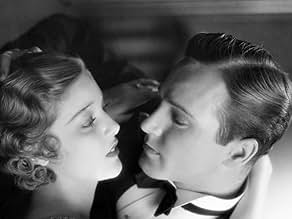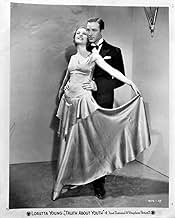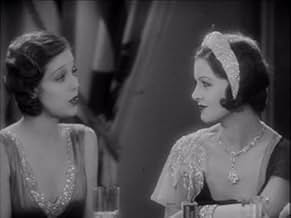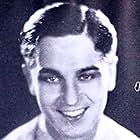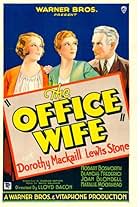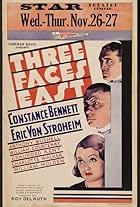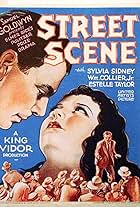Richard Carewe has raised his deceased friend's son from childhood with the help of his housekeeper and her beautiful daughter Phyllis. He arranges a marriage between the lad and Phyllis, bu... Read allRichard Carewe has raised his deceased friend's son from childhood with the help of his housekeeper and her beautiful daughter Phyllis. He arranges a marriage between the lad and Phyllis, but the rascal impulsively marries a notorious nightclub singer known as "The Firefly." The ... Read allRichard Carewe has raised his deceased friend's son from childhood with the help of his housekeeper and her beautiful daughter Phyllis. He arranges a marriage between the lad and Phyllis, but the rascal impulsively marries a notorious nightclub singer known as "The Firefly." The femme fatale dumps the boy when she discovers that he has no money, but by then Phyllis re... Read all
- Director
- Writers
- Stars
- Jim - Kara's Boyfriend
- (uncredited)
- Headwaiter
- (uncredited)
- Nightclub Patron
- (uncredited)
- Babette - Kara's Maid
- (uncredited)
- Nightclub Patron
- (uncredited)
- Nightclub Patron
- (uncredited)
- Hal - Dane's Pal
- (uncredited)
- Jim Greene
- (uncredited)
- Night Club Patron
- (uncredited)
- Cherry - Blonde Party Girl
- (uncredited)
- Man at Wedding License Bureau
- (uncredited)
- Director
- Writers
- All cast & crew
- Production, box office & more at IMDbPro
Featured reviews
Conway Tearle has brought up an old friend's son played as an adult by David Manners. As an adult he's referred to as 'the Imp' which should give you some idea of his character. Manners is a likable enough chap, but incredibly weak and addicted to high living and the family fortune won't take the strain of his partying much longer.
Loretta Young is housekeeper Myrtle Stedman's daughter and she and Manners have grown up in the same household and it's the fondest wish of Tearle and Stedman that they be eventually wed. But when Manners takes one look at nightclub singer and vamp Myrna Loy it all goes out the window.
Loy's goldigging dame is far more of a Thirties character than one which belonged at the turn of the last century. She's great, but she's also jarringly out of place from the rest of the cast. Myrna probably figured also it was the best way to be noticed in this old fashioned and turgid drama in which title cards were still used though it's an all talkie picture.
The ending will surprise you, but think of Ronald Reagan and Shirley Temple in That Hagen Girl for a hint. That was a worse film.
Manners arrives home, falling down drunk. The next morning, he hides his interest in Loy, guzzles water to battle cotton-mouth, and goes out to seem more of the "vulgar" Loy. Back home, clueless Young finds a note that drunken Manners dropped, from the gold-digging Loy, accepting his marriage proposal. As it was addressed to "Richard," Young thinks Mr. Tearle is the one set to wed Loy. When Young returns the note to Tearle, he covers for Manners. Marriage, misunderstanding, and related mayhem follow - and, finally, Young finds "The Truth About Youth" is that sometimes older is better.
Don't miss Young's dress in the opening scene; she wears a strategically placed strap-on "attachment" that seems to shout out an invitation to Manners. If he hadn't stepped out to see bare-legged Loy, we might have had a different movie. Manners plays his drunk scene, and the morning after, well; he's almost commenting on those who call his acting "stiff." It's still Young's movie, however, as she becomes the central character. Young and Loy are fun, especially in their nightclub scene. Probably most outstanding is seeing Tearle continue to play leading-man roles into the 1930s.
****** The Truth About Youth (11/3/30) William Seiter ~ Loretta Young, Conway Tearle, David Manners, Myrna Loy
* 1/2 (out of 4)
Incredibly flat and lifeless drama about an older man (Conway Tearle) who raises a boy (David Manners) as his own in hopes that he will marry the housekeeper's daughter (Loretta Young). The only problem is that the boy falls in love with a "much older" vamp (Myrna Loy) who plans on stealing all of his money. Young is my favorite actress and I'm a big fan of both Manners and Loy so this film comes as a major disappointment because it starts off lousy and gets worse as it goes along. The biggest problem with this thing, and there are many, is that the screenplay is so old-fashioned that it doesn't fit in with the type of entertainment coming out in the 30s. Why the studio would pick this type of story to make a talkie out of is beyond me because I can't imagine anyone enjoying it in 1930 and it's even worse today. The screenplay is one big moral lesson after another as we're constantly told why we should marry the girl out home instead of going out in the big, bad city where mean women are waiting to steal money. The narrow-minded stereotypes here are at times mildly laughable but things take an even dumber turn when the ending arrives and if you think about what's going on it becomes rather creepy. I also find it funny that the studio had Loy playing the "much older" seducer even though Manners was actually four years older than her in real life. The early talkie makes for some pretty bad moments as it seems there are a few times where the actors mess up their lines because we get a brief pause like they're trying to remember them. The weird camera shots and some static direction doesn't help things either. I think fans of the three, like me, will probably find the performances rather disappointing as well. Just take a look at the early scenes where Manners is playing drunk and you'll probably end up laughing at how stiff he is. It's even worse when a letter is discovered and Manners' fears that Young has discovered his secret. The way Manners stands there with his eyes wide open is just plain bad. Loy is so-so in her part but there's no denying that she's much too young to be playing it. Young has a few rough moments but she comes off the best as she's certainly believable in the part and we can certainly feel for her. She might also have the highlight in the opening scene as she's shown in a dress is quite a sexual way. With all of that said, this is an extremely dull movie that has very little going for it and I'm sure many will have a hard time sitting through the rather short 64-minutes.
Because this is an early talkie, the film comes off as rather wooden. Both Loy and Young are gorgeous, Loy as a vamp and Young as a sweet young thing. Both had those short hairdos with the tight wave so popular back then. Loy has the better role as a money-grubber, and she's great. The gown she wears in performance is a knockout - an actress could wear it to the Oscars today.
The men are just okay, with the exception of two of the guardians, J. Farrell McDonald and Harry Stubbs, who provide some humor.
Before she became Nora Charles, Loy was cast as a vamp, usually an exotic one, until a producer who knew her personally decided to mine her humor. "The Truth About Youth" is an excellent chance to see her in an early role.
The conflict begins when David Manners, pledged to marry Young, falls instead for nightclub performer Loy whose exotic, cynical, gold-digger comes as refreshing counterpoint to Young's homespun housekeeper's daughter. Loy lip syncs a couple of forgettable songs and dances passably & briefly, looking gorgeous at all times. Melodies of two better songs of the day, "Get Happy" and "Miss Wonderful," are played during nightclub scenes.
Young's line readings are smooth and natural, especially considering her age at the time. But they are, in fact, rattled off too smoothly to register the subtleties of thought that her character is experiencing, so that when she reaches certain conclusions late in the story, they seem arbitrary. Loy's best moment is an outburst of anger while in the arms of David Manners when she finds out he isn't quite the cash cow she thought he was, but the scene collapses when she hurls a vase at him, and misses by a mile. Manners himself is slightly less wooden than usual, but only slightly. He does manage to get a drunk scene half right.
A few inter-titles illustrate a lingering habit from the silent era, while underscoring in some dramatic scenes reminds us that even in 1930 pure unadulterated soundtrack hiss was not always the case.
To those who find the ending shocking, tut-tut. Surprising, maybe.
Did you know
- TriviaMyrna Loy was actually a fully trained professional dancer, having studied with Ted Shawn (husband of modern dancer Ruth St. Denis and co-leader with her of the Denishawn company), but "The Truth About Youth" and Warners' all-star musical "The Show of Shows" were among the few movies in which she actually got to dance.
- GoofsDuring Kara's first number at the Firefly Club, she purses her lips and blows a kiss to someone in the audience. It is an obvious lip-sync as she is still heard singing while doing that.
- Quotes
Phyllis Ericson: It's about time I began. What chance does a girl nowadays, if she doesn't do this and won't do that?
- ConnectionsFeatured in Myrna Loy: So Nice to Come Home to (1990)
- SoundtracksIn the Land of Let's Pretend
(uncredited)
Music by Harry Akst
Played during the opening credits
Also played when Phyllis is sitting with Dick and Kara at the Firefly
Also played when Phyllis and Dick are alone at the end
Details
- Release date
- Country of origin
- Language
- Also known as
- When We Were Twenty-One
- Filming locations
- Production company
- See more company credits at IMDbPro
Box office
- Budget
- $153,000 (estimated)
- Runtime1 hour 9 minutes
- Color
Contribute to this page



